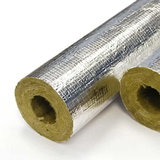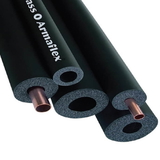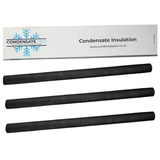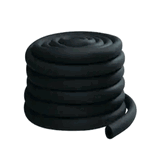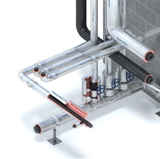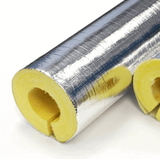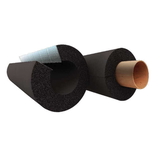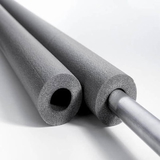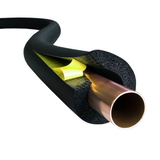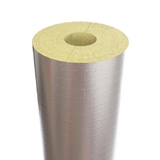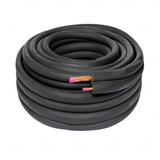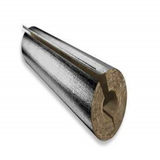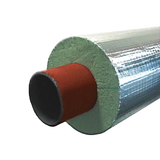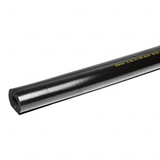- Blogs
- Insulate pipes to stop the spread of legionnaires' disease
Insulate pipes to stop the spread of legionnaires' disease
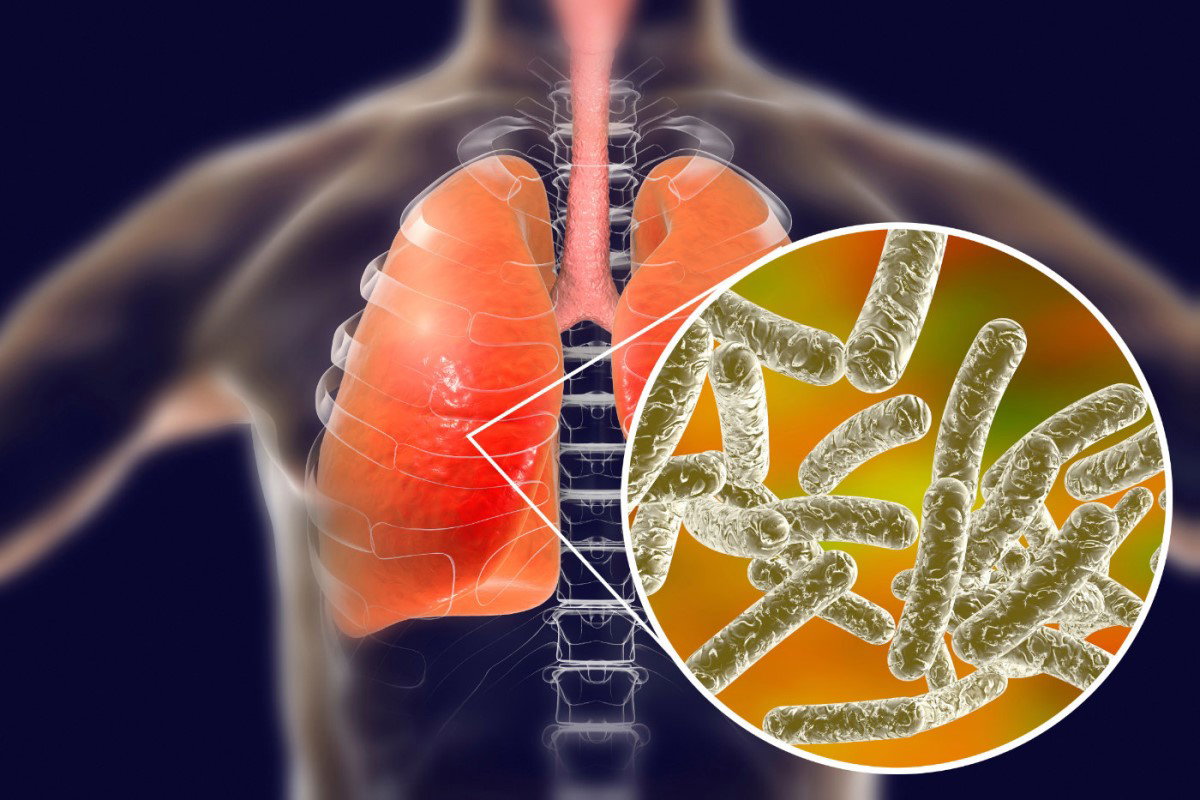
Everyone has the right to clean water. All of us expect safe water when we open the taps at any hour of the day.
We take the effort to maintain our plumbing and ensure it is working properly, without any leaks.
Pipe insulation helps with the proper maintenance of the plumbing system. It saves energy and protects pipes from freezing in your facility. The benefits of pipe insulation is something we have discussed extensively here at Buy Insulation Online. In this blog, we will be discussing yet another advantage of insulating pipes - the prevention of Legionnaires disease. We will see how insulating pipework can keep the bacteria away whilst keeping your loved ones safe and healthy.
What is legionnaires?![legionnaries bacteria]()
- Legionella Pneumophila or Legionella is a bacteria that commonly inhabits natural water systems in small amounts. It's also found in man made water systems that include spa pools, cooling towers, to name a few. Cold and hot water pipes that have been unused for quite some time can also harbour bacteria, for example in between tenancies in rental properties or where the owner has passed away and the property has sat empty waiting to be sold
- The Legionnaires' disease caused by the bacteria is common knowledge because of the many cases and outbreaks reported throughout the UK.
How do you get legionnaires disease?
Under the right conditions, which is water at 25 to 45 degrees Celsius, the Legionella bacteria can flourish and multiply rapidly. A higher number of bacteria means a greater chance that they will infect humans.
 Typically, the bacteria enters the body when you breathe in the tiny droplets of water in the air in an environment (heating/cooling system) that is already contaminated with the bacteria. You could also come in contact with the bacteria through spa pools, hot tubs, air conditioning systems, humidifiers and faucets and showers that are rarely used.
Typically, the bacteria enters the body when you breathe in the tiny droplets of water in the air in an environment (heating/cooling system) that is already contaminated with the bacteria. You could also come in contact with the bacteria through spa pools, hot tubs, air conditioning systems, humidifiers and faucets and showers that are rarely used.
Legionella is also known to enter the drinking water supply of a facility through the primary(main) water supply. This is why people who work with water systems must ensure that Legionella does not build up in pipework. One of the ways to do that is to install pipe insulation, but we will discuss that a little later.
How do legionnaires affect people? Its symptoms and cure.
As mentioned earlier, Legionella enters the human body when you inhale microscopic water droplets that carry the bacterium. Once settled in your body, the bacteria multiply, leading to flu-like symptoms like prolonged cough, fever, chest pain, difficulty in breathing - all signs of Legionnaires' disease. The disease highly affects the elderly, people with drug addiction and respiratory problems.
Legionnaires' disease can be treated with antibiotics once diagnosed. If necessary, breathing assistance can also be utilised. However, the illness could be fatal if left untreated or identified too late.
The impact:
Each year, approximately 200-250 confirmed cases of Legionnaires' disease are reported in England and Wales. These numbers, however, are said to be underestimated as about 90-95% of the cases go unrecognised or unrecorded. But the good news is the steady decline in the number of outbreaks as more property owners are looking for ways to avoid Legionella in the plumbing.
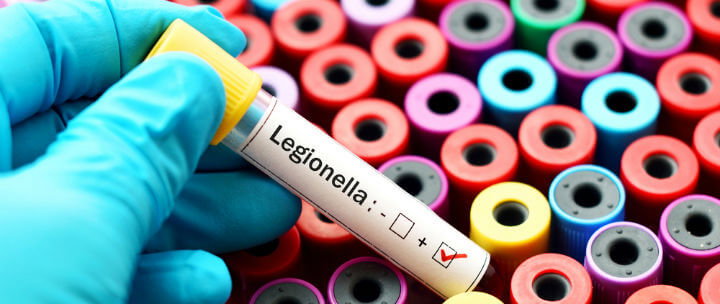
Solution for legionella disease:
A plan of action that includes operational, process-related and structural controls needs to be put in place to prevent, control and eradicate bacterial contamination:
1. Eliminate unnecessary pipe lengths.
Under the right conditions, extended lengths of pipes in a plumbing system could become ideal breeding grounds for the legionella and other microorganisms. So, it is better to keep the pipe length in your plumbing to a minimum and prevent extended runs unnecessarily.
If you have pipe overruns, then the plumbing in your facility must be changed to make the water flow quickly and effectively in the facility and reduce the risk of stagnation. Seek advice from plumbers or pipework professionals for designing a pipe system for your building.
2. Clean water tanks regularly:
Clean and disinfect the water tanks in your building, at least once a year. A qualified, professional plumber or engineer can advise on appropriate, relevant cleaning alternatives as well as provide information on risk areas. Insulate the water tanks in your facility using insulation jackets to prevent temperature fluctuations.
Without proper maintenance, the water tanks can be a breeding ground with all the debris and dirt for not just Legionella, but a range of other microbes.
The water tanks must be checked, cleaned and disinfected regularly.
3. Add a water softener to your system.
The limescale present in the 'hard' water that is used in most of the UK deposits itself on the pipes. The limescale acts as food for the bacteria, thereby increasing their numbers. If frequent descaling is too time-consuming, a water softener might help to mitigate the hazard.
4. Eliminate the 'blind' spots where water can collect and pool.
The ‘blind ends’ that arise when you move or remove appliances in a building are basically portions of pipes that have been cut off. These pipe joints could contain stagnant water, where the bacteria can thrive. This type of space must be eliminated as part of a larger plumbing plan.
5. Insulate pipes to control legionnaires:
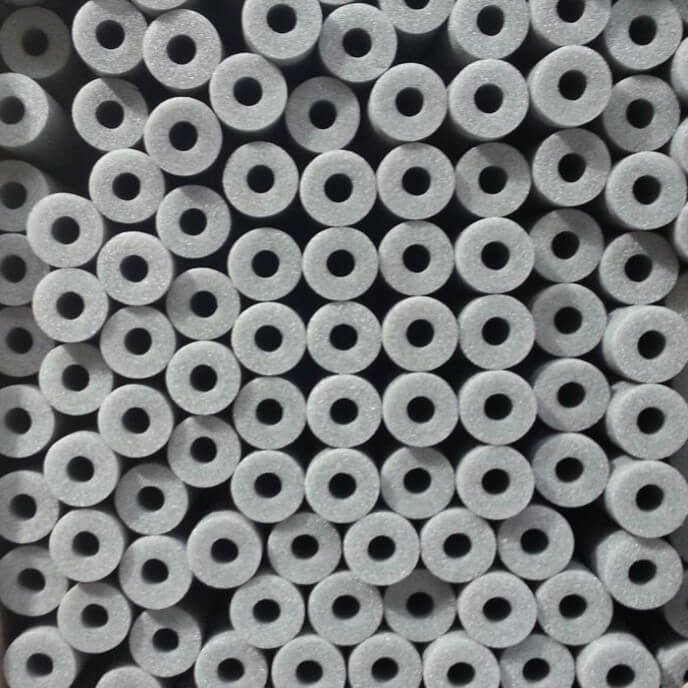 The last and probably most critical factor in controlling the spread of bacteria is controlling the water temperature. This is why it’s of utmost importance that you lag pipes in your facility. Foam pipe insulation is perfect to insulate both hot and cold water pipes. Along with other types of pipe insulation, it is the most cost-effective way to deal with Legionella.
The last and probably most critical factor in controlling the spread of bacteria is controlling the water temperature. This is why it’s of utmost importance that you lag pipes in your facility. Foam pipe insulation is perfect to insulate both hot and cold water pipes. Along with other types of pipe insulation, it is the most cost-effective way to deal with Legionella.
Without proper pipe insulation in hot and cold water pipes, unwanted temperature drops or increases happen. These fluctuations can reduce the temperature in hot water pipes below 45 degrees Celsius, and increase the temperature in cold water pipes above 25 degrees, which boosts the growth of the bacteria. This is dangerous, especially when water is stagnant in pipes. Lagging pipework in your building helps with temperature control. Pipe insulation helps keep the hot water temperature above 45 degrees and the cold water temperature below 25 degrees celsius.
To prevent heat transfer between hot and cold water pipes in a wall cavity or duct, ensure both these pipes are properly insulated. Insulate pipework with the appropriate insulation thickness to save energy and arrest the growth of the bacteria. Factors such as humidity, temperature, service temperature of the pipes will influence the thickness of the pipe insulation chosen. You can find the current pipe insulation thicknesses for residential and industrial applications in BS5422.
One of the most effective legionella control measures in a cold water distribution system is maintaining a frequent circulation of cold water in portions prone to stagnation and protecting from excessive heat gain by utilising insulation on cold water tanks and pipes. Also, since cold pipes work at a lower temperature than the ambient temperature, they are prone to condensation. This is why foam pipe insulation is ideal to lag cold water pipes. Besides preventing cold water pipes from gaining heat, they also prevent condensation due to their in-built water vapour.
Conclusion:
For the majority of buildings, the precautions listed are sufficient to tackle legionnaires disease.
Effective insulation along with an effective plumbing system can help check the spread of the bacteria in your facility. Clean water tanks regularly and ensure the water does not remain stagnant in pipes by flushing them out once in a while in properties which are left empty.
For superior quality pipe insulation, insulation jackets and more, visit Buy Insulation Online. We provide pipe lagging of all types including, mineral wool and foam pipe insulation, in all sizes at low cost and deliver for free in the main cities of the UK. If you are unsure of the thickness of the pipe insulation you need, feel free to contact our experts.

Samuel Hitch
Managing Director
Buy Insulation Online.
Leave A Reply
Your feedback is greatly appreciated, please comment on our content below. Your email address will not be published. Required fields are marked *













